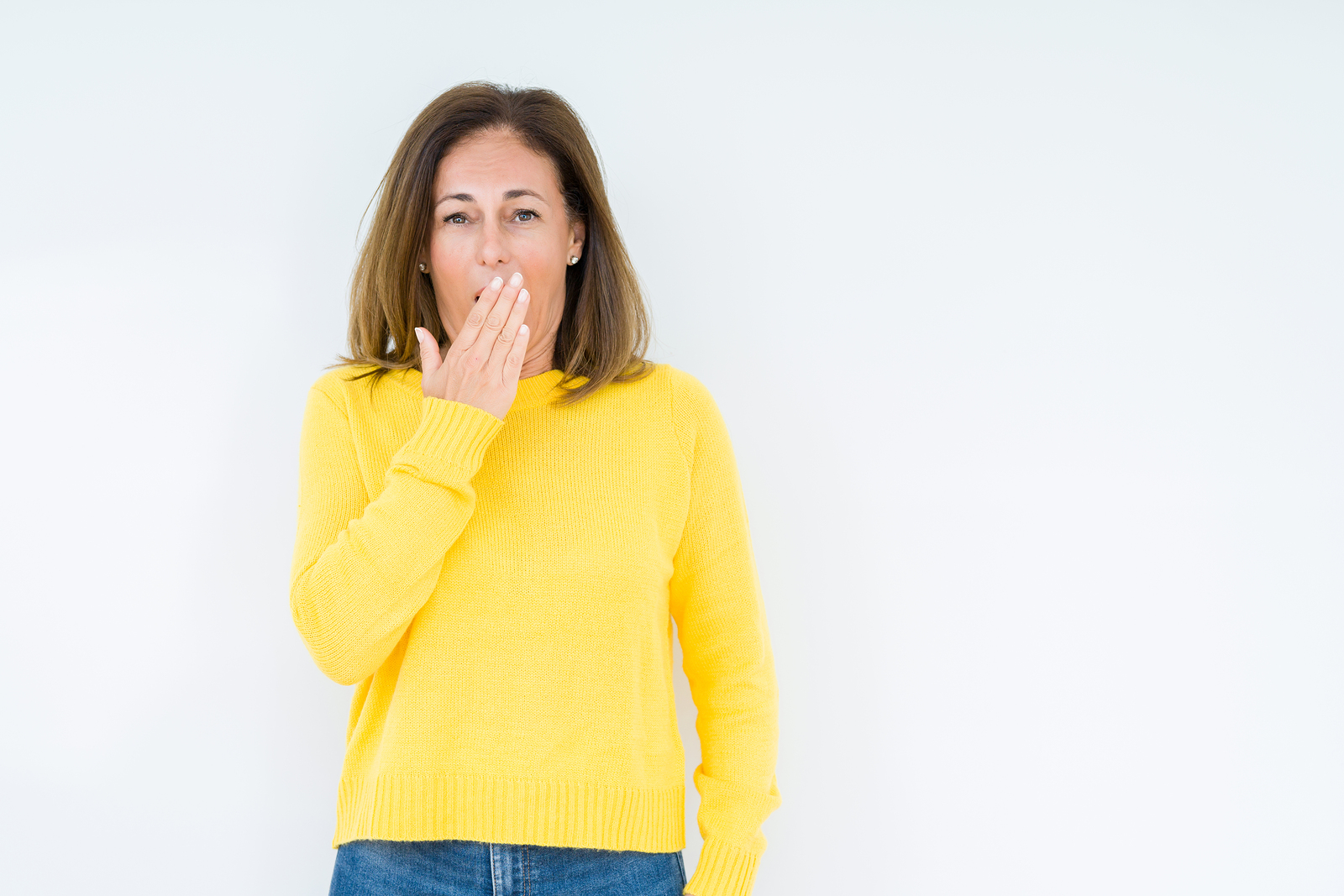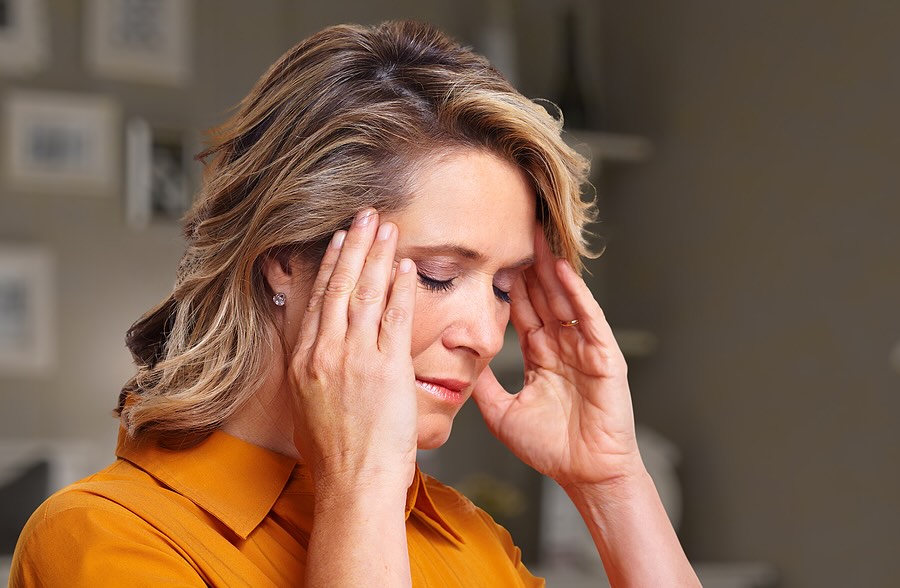Thyroid imbalance is such a major issue for women these days, and I see more and more women in my office seeking help in managing the symptoms of thyroid disease. Many of these women have been diagnosed with Hashimoto’s disease, but the only real solution their physicians have offered is to take medication for the rest of their lives, or watch and wait.
I think there is a better way to manage these symptoms, but that means digging a little deeper to find out what has caused the thyroid disruption in the first place. Testing positive for Hashimoto’s disease doesn’t have to mean a lifetime of prescription drugs. I’m all about making natural lifestyle changes to manage symptoms, rather than masking them.
Sleep is a very important factor in managing any hormonal imbalances, including thyroid dysfunction. Without knowing it, women could be caught up in a vicious cycle – sleeplessness causing increased thyroid imbalance and symptoms, then the thyroid problems causing sleeplessness – and on and on. It’s no wonder they can’t find relief!
Sometimes, women don’t even know their sleep is being disrupted. They just wake up day after day, feeling exhausted no matter how many hours they’ve slept. Or they toss and turn at night, trying to get to sleep and growing more anxious every minute they’re awake.
The good news is, there’s plenty we can do to break the cycle – often without medication. Let’s take a quick look at what Hashimoto’s disease is, what sleep apnea is, and how the two are connected. Then I’ll give you some lifestyle tips to help you get a good night’s sleep and break that cycle once and for all.
What is Hashimoto’s Disease?
Hashimoto’s disease is an autoimmune condition that can have great impact on how your thyroid gland functions. When you have Hashimoto’s, you have antibodies present in your body that think your thyroid gland is a threat. These antibodies attack the thyroid, which is responsible for producing vital hormones your body needs to function. This constant attack by antibodies cause inflammation, which can lead to low hormone production by your thyroid gland. This is known as hypothyroidism.
While Hashimoto’s disease mainly affects middle-aged women, it can occur in anyone.
Symptoms and Diagnosis of Hashimoto’s Disease
Hashimoto’s disease is often diagnosed when someone begins experiencing symptoms of hypothyroidism. These include dry skin, extreme tiredness or lethargy, constipation, a hoarse voice, a goiter (enlarged thyroid gland) or a history of thyroid problems. But since symptoms can start small and build, Hashimoto’s can go undiagnosed for a long time, leading to more serious symptoms.
Blood tests that measure levels of both thyroid hormones and thyroid-stimulating hormone (TSH) are also used to diagnose Hashimoto’s disease. With an underactive thyroid, thyroid hormones will be low while TSH is high as your pituitary gland works hard to prompt your thyroid gland to produce more hormones.
Another blood test will reveal the presence of TPO antibodies, which attack thyroid peroxidase, an important enzyme in the production of thyroid hormones. Hashimoto’s is an autoimmune disorder, which means immune cells are attacking healthy tissues rather than protecting them. When your thyroid gland is attacked by immune cells, antibodies are produced. So if you have these antibodies in your blood, you have Hashimoto’s disease – even if you don’t have symptoms yet. As antibody levels increase, you’ll experience more and more symptoms.
What is Sleep Apnea?
Now that you know a little more about Hashimoto’s, let’s talk about sleep apnea. Sleep apnea is a chronic condition marked by pauses in breath as you sleep. It’s often, like Hashimoto’s disease and so many other conditions, associated with inflammation.
Often these pauses in sleep go unnoticed, but the constant waking causes real disruption to restful sleep. People with untreated sleep apnea often wake up feeling extremely tired no matter how long they’ve slept. Obstructive sleep apnea (OSA) is the most common type, affecting about 2-9% of women.
There are many risk factors for sleep apnea, including obesity, a small jaw, allergies or sinus problems, acid reflux, a deviated septum, an enlarged tongue or tonsils, and a scalloped tongue. A scalloped tongue is also frequently present in people who have Hashimoto’s disease.
Symptoms of sleep apnea include snoring, trouble waking up, fatigue, restless sleep, mouth breathing, nasal congestion and nasal sounding speech. If experiencing any of these symptoms, I recommend undergoing a sleep study to explore the possibility of sleep apnea.
What’s the Connection Between Hashimoto’s and Sleep Apnea?
Research has shown that a quarter to one-third of people with hypothyroidism also have sleep apnea. But which one comes first? That’s a little like the chicken-egg question, because of that cycle I mentioned earlier. Hypothyroidism can cause sleep apnea because of the increased risk of obesity, breathing difficulties it can present, and protein deposits in the upper airway. But research has also shown that sleep apnea may increase the risk of hypothyroidism. One study, published in 2012 in Endocrine Journal, found that 53.2 % of people with OSA tested positive for thyroid antibodies that indicate Hashimoto’s disease. That same study found that people with sleep apnea and Hashimoto’s (as compared to those with Hashimoto’s but no sleep apnea) had higher levels of antibodies in their blood.
Because the symptoms of hypothyroidism and sleep apnea overlap, getting to the root of the problem can be difficult. But simply knowing there’s a connection can be useful when your ultimate goal is to feel better. It isn’t really relevant which came first as long as you find and treat both problems. Treating your hormone imbalances without addressing your sleep problems could land you right back where you started – as could treating your sleep disturbances without knowing where your thyroid levels stand.
Treating Both Issues Can Lead to Real Results!
The best evidence I have that it’s important to look at all the angles is the success I have in my practice. Because I look at the whole picture, I can get to the root of the symptoms and create lasting change with both short-term treatment and long term lifestyle changes. Let me give you an example. Tracey’s story illustrates just how important sleep is, especially when dealing with an autoimmune disease like Hashimoto’s.
Tracey is 54, and she knows that she has Hashimoto’s disease. Recently, she came to me because she was feeling lousy, and when we tested her antibody levels, they were extremely high. I began treatment, asking her to focus on two main things – how she was eating, and how she was sleeping.
With all that inflammation going on in her body, her sleep had really suffered. I knew we could change that, so I had her begin taking my Stress Ease formula. She’d told me she’d also been worrying a lot at night, raising her cortisol levels and making sleep even more elusive, and I knew this supplement could help.
At the same time, I wanted her to become very mindful about what she was putting in her body, so I started her on my weight loss program. She lost 40 pounds and after starting an anti-inflammatory diet, she began to feel great. When she returned to see me this week, her antibodies had decreased by half of what they had been! As her antibodies dropped, her energy rebounded, and so did her ability to get a good night’s sleep. And better sleep helps reduce inflammation, thus beginning a much healthier cycle.
Tips to Help You Manage Hashimoto’s and Sleep Apnea
Both Hashimoto’s and sleep apnea are conditions you may or may not have forever, but that doesn’t mean you have to live with painful symptoms! Awareness, along with specific treatments and lifestyle changes, can keep you feeling great despite the diagnosis!
Get Tested
The first thing I suggest if you’re having symptoms that suggest either Hashimoto’s or sleep apnea is to have your health care provider run the appropriate tests. This includes a sleep study to determine whether or not you have sleep apnea, and blood tests for both thyroid hormones and antibodies. You have to know what you’re dealing with to know the best way to proceed!
Use a CPAP Machine
If you have sleep apnea, the preferred initial treatment is a continued positive airway pressure (CPAP) machine. While the machine can take some getting used to, when used properly and consistently, it can be very effective in allowing for a good night’s sleep. And that can be extremely beneficial in decreasing your symptoms of Hashimoto’s disease.
Pay Attention to Nutrition
Food is such an important part of health, especially if you are prone to inflammation. Paying close attention to what you eat, avoiding processed food, and identifying any sensitivities you have can go a long way in reducing your symptoms. Gluten, dairy and sugar are the most common culprits, so you may want to try an elimination diet to see if you notice a difference when you’re not eating these foods.
Find Ways to Reduce Stress
Stress can have a huge impact on both the thyroid and sleep. Finding ways to calm your body regularly with meditation, exercise, or a calming bedtime routine, for example, can make a big difference.
Support Your Body with Supplements
I recommend that everyone take a daily multivitamin to avoid nutrient deficiencies. It’s challenging to get all you need from food alone, even when you eat the healthiest food you can. You might also need targeted support for your thyroid or to help you sleep as you get back on track.
Don’t Let Hashimoto’s, Sleep Apnea, or a Combination of the Two Keep You Down!
Dealing with a chronic condition can be daunting, and a combination of two can feel like a double whammy! But with some information, lifestyle changes, and intentional support, you can minimize your symptoms, increase restful sleep, and feel great again!
Resources:
https://www.endocrineweb.com/conditions/hashimotos-thyroiditis/hashimotos-thyroiditis-diagnosis
https://thyroidpharmacist.com/articles/hashimotos-sleep-apnea/







